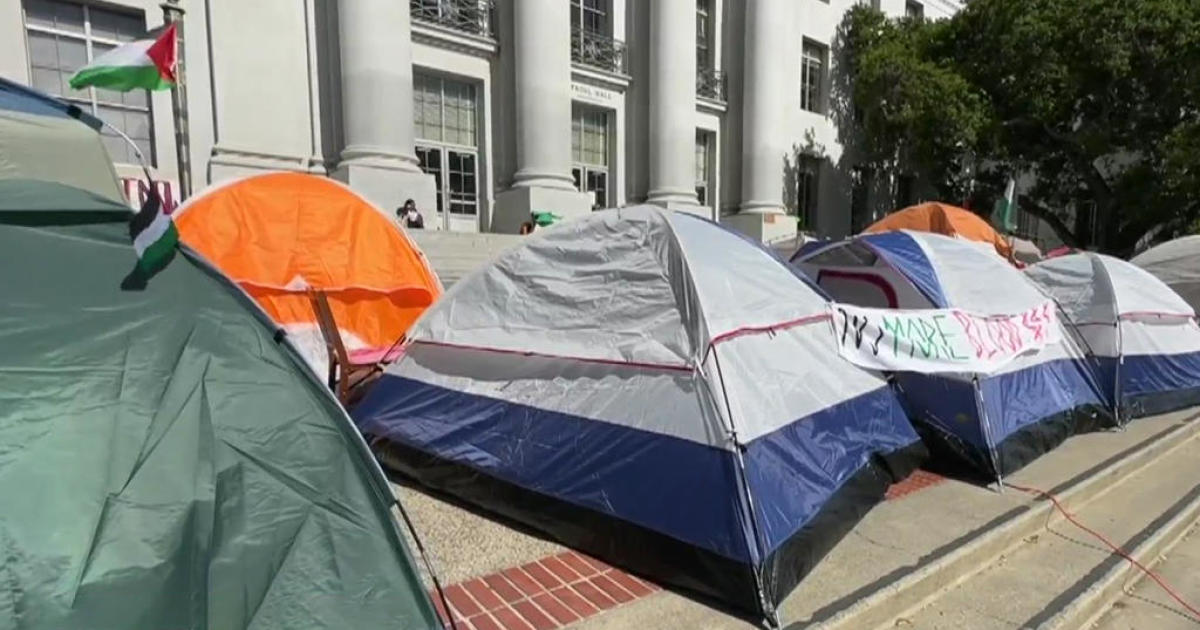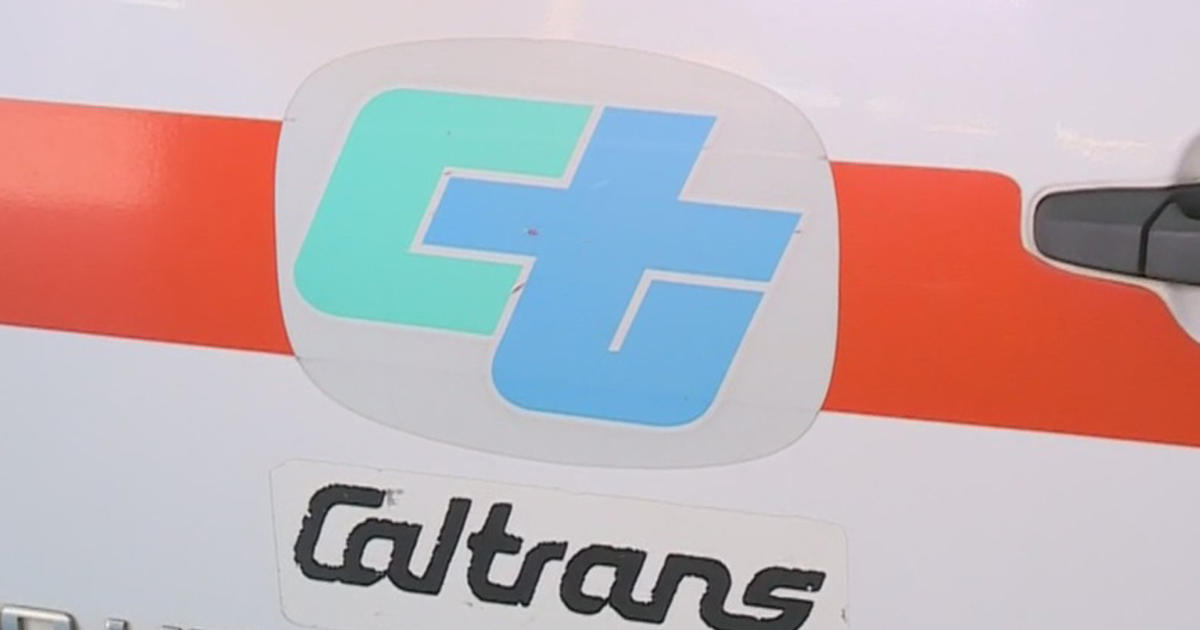Gov't Shutdown Blame Game Starts With No End In Sight
WASHINGTON, D.C. (CBS/AP) -- First slowed, then stalled by political gridlock, the vast machinery of government clanged into shutdown mode on Tuesday and President Barack Obama warned the longer it goes "the more families will be hurt." Republicans said it was his fault, not theirs.
Ominously, there were suggestions from leaders in both parties that the shutdown, heading for its second day, could last for weeks and grow to encompass a possible default by the Treasury if Congress fails to raise the nation's debt ceiling. "This is now all together," said Sen. Dick Durbin, D-Illinois.
- RELATED CONTENT: What Is Open, Closed? See The List
Speaking at the White House, the president accused Republicans of causing the first closure in 17 years as part of a non-stop "ideological crusade" to wipe out his signature health care law.
U.S. House Speaker John Boehner, R-Ohio, gave as good as he got. "The president isn't telling the whole story,' he said. "The fact is that Washington Democrats have slammed the door on reopening the government by refusing to engage in bipartisan talks."
He spoke in a Capitol closed to regular public tours, part of the impact of a partial shutdown that sent ripples of disruption outward - from museums and memorials in Washington to Yellowstone and other national parks and to tax auditors and federal offices serving Americans coast to coast.
Democratic Sens. Barbara Boxer and Dianne Feinstein both shut down most of their California operations and curtailed Washington, D.C. staff activities.
"This is, simply stated, unacceptable," said Feinstein, who is also the chairwoman of the Senate Intelligence Committee. "The failure of this Congress to perform its most basic functions means that our country is at heightened risk of terrorist attack."
She noted that 72 percent of the civilian work force at intelligence agencies had been furloughed, impacting the government's ability to warn of attacks and developments affecting national security. Overall, officials said roughly 800,000 federal employees would be affected by the shutdown.
RELATED STORIES:
Among those workers were some at the National Institute of Health's famed hospital of last resort, where officials said no new patients would be admitted for the duration of the shutdown. Dr. Francis Collins, agency director, estimated that each week the shutdown lasts will force the facility to turn away about 200 patients, 30 of them children, who want to enroll in studies of experimental treatments. Patients already at the hospital are permitted to stay.
Early Tuesday, House Republicans sought swift passage of legislation aimed at reopening small slices of the federal establishment. The bills covered the Department of Veterans Affairs, the Park Service and a portion of the Washington, D.C., government funded with local tax revenue.
Senate Democrats announced their opposition, saying Republicans shouldn't be permitted to choose which agencies should open and which remain shut.
Ironically, a major expansion of the health care law - the very event Republicans had hoped to prevent - was unaffected as consumers flocked for the first time Tuesday to websites to shop for coverage sold by private companies.
The talk of joining the current fight - the Republicans are trying to sidetrack the health care law by holding up funding for the fiscal year that began at midnight Monday - to a dispute involving the national debt limit suggested the shutdown could go on for some time.
The administration says the ceiling must be raised by mid-month, and Republicans have long vowed to seek cuts in spending at the same time, a condition Obama has rejected.
In Washington, some Republicans conceded privately they might bear the brunt of any public anger over the shutdown - and seemed resigned to an eventual surrender in their latest bruising struggle with Obama.
Democrats have "all the leverage and we've got none," said Sen. Saxby Chambliss of Georgia.
Rep. Devin Nunes, R-Calif., said sardonically his party was following a "Ted Cruz-lemmings strategy" - a reference to the senator who is a prime proponent of action against the health care overhaul - and Rep. Scott Rigell of Virginia said it was time to pass legislation reopening the government without any health care impediments. "The shutdown is hurting my district - including the military and the hard-working men and women who have been furloughed due to the defense sequester," he said.
But that was far from the majority view among House Republicans, where tea party-aligned lawmakers prevailed more than a week ago on a reluctant leadership to link federal funding legislation to "Obamacare." In fact, some conservatives fretted the GOP had already given in too much.
Gone is the Republican demand for a full defunding of the health care law as the price for essential federal funding. Gone, too, are the demands for a one-year delay in the law, a permanent repeal of a medical device tax and a provision making it harder for women to obtain contraceptive coverage.
In place of those items, Republicans now seek a one-year-delay in the requirement for individuals to purchase insurance, and they want a separate provision that would dramatically raise the cost of health care for the president, vice president, members of Congress and thousands of aides.
Boehner has declined to say whether he would permit a vote on a stand-alone spending bill to reopen the government, stripped of health care provisions, though Democrats and Obama continued to call on him to do so. "He's afraid it will pass," said Durbin.
Sen. Cruz, R-Texas, the most prominent advocate of the "Defund Obamacare" movement, said the Senate should follow the House's lead and quickly reopen programs for veterans and the parks. Asked why it was appropriate to do so without demanding changes in the health care law, he offered no answer.
"None of us want to be in a shutdown. And we're here to say to the Senate Democrats, `Come and talk to us,'" said House Majority Leader Eric Cantor, R-Va., as GOP lawmakers called for negotiations with the Senate on a compromise.
It was an offer that Senate Democrats chose to refuse, saying there was nothing to negotiate until Republicans agreed to reopen the federal establishment.
"The government is closed because of the irrationality of what's going on on the other side of the Capitol," said Senate Majority Leader Harry Reid.
In addition to "closed" signs and barricades springing up at the Lincoln Memorial and other tourist attractions, NASA and the Environmental Protection Agency were virtually shuttered, and Obama said veterans centers would be shut down.
Government workers classified as essential, such as air traffic controllers, Border Patrol agents and most food inspectors, remained on the job.
So, too, members of the military, whose pay was exempted from the shutdown in separate legislation Obama signed late Monday. Employees whose work is financed through fees, including those who issue passports and visas, also continued to work. The self-funded Postal Service remained in operation, and officials said the government will continue to pay Social Security benefits and Medicare and Medicaid fees to doctors on time.
At the White House, aides discussed whether Obama should change plans for a trip to Asia scheduled to begin Saturday. Staffing was reduced at the famed mansion, where a groundskeeper working outside at daybreak said he was doing the work normally handled by four.
In Congress, some aides were furloughed and others said they were working without pay. Democratic Sen. Tom Carper sent an email to his Delaware constituents telling them not to expect responses to their emails and phone calls.
Lawmakers and the president were still getting paid, however, at a rate totaling more than $250,000 per day for all of them.
(Copyright 2013 CBS San Francisco. All rights reserved.)



